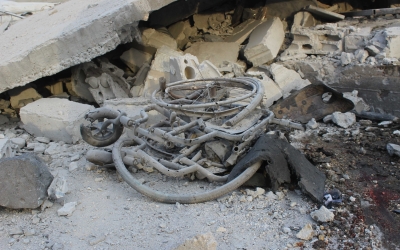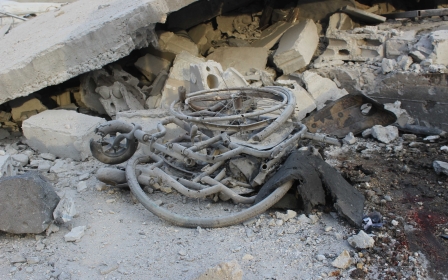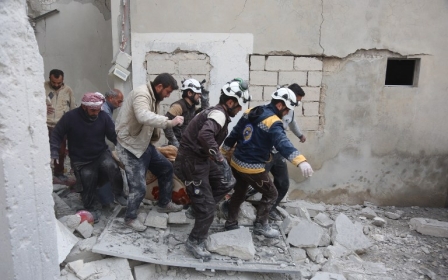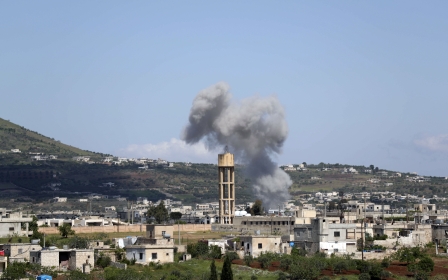France warns against 'new Aleppo' in Syria as Idlib attacks intensify
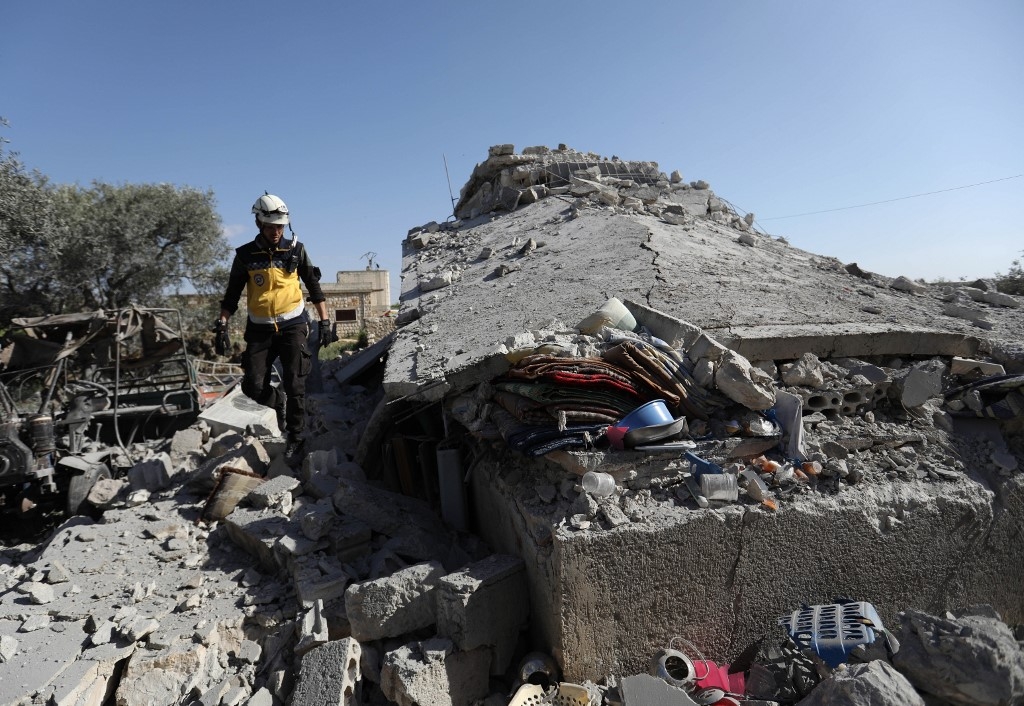
France has warned that escalating violence in Syria's northwestern Idlib province will lead to a new humanitarian catastrophe as thousands continue to be displaced in the rebel-held area.
French UN ambassador Francois Delattre told reporters on Friday ahead of a closed UN Security Council meeting that it was important to avert a brutal takeover of the province by government forces.
"A new Aleppo must at all cost be prevented in Idlib," said Delattre.
The warning comes as the Syrian government ramps up its campaign to take control of the province.
Bashar al-Assad's forces, flanked by their Russian allies, have bombed civilian infrastructure across the Idlib since late April, raising concerns that Damascus is set to launch an all-out assault.
Syrian forces backed by Russian air power waged a long battle for Aleppo that ended in late 2016, costing thousands of lives and leaving the historic city in ruins.
"We need to send a very clear message to all those who might be tempted by an escalation in Idlib," Delattre said.
"If it happens, then you will have a humanitarian catastrophe there - it's written - and on top of it you will destroy the perspective of a political process that we all want to give a boost to."
Belgium, Germany and Kuwait, three non-permanent council members, requested the urgent meeting after hospitals and schools were hit by strikes. More than 150,000 people have been displaced in one week alone.
The three countries are leading the council's efforts to address the humanitarian crisis in Syria, now in its ninth year of war.
Since 29 April, 12 health facilities, including two major hospitals, have been hit in northwest Syria, according to the World Health Organisation.
About three million people live in Idlib, the last major bastion to remain outside the control of the Syrian government.
The province is largely controlled by the former al-Qaeda affiliate Hay'at Tahrir al-Sham (HTS), after they pushed out other rebel groups in February.
"The situation is dramatic and deteriorating," said German Ambassador Christoph Heusgen, who said civilian infrastructure was being targeted in the bombing campaign.
Diplomats said the meeting was to draw attention to the crisis, but any concrete action would likely be opposed by Russia, a veto-wielding council member.
Middle East Eye propose une couverture et une analyse indépendantes et incomparables du Moyen-Orient, de l’Afrique du Nord et d’autres régions du monde. Pour en savoir plus sur la reprise de ce contenu et les frais qui s’appliquent, veuillez remplir ce formulaire [en anglais]. Pour en savoir plus sur MEE, cliquez ici [en anglais].


